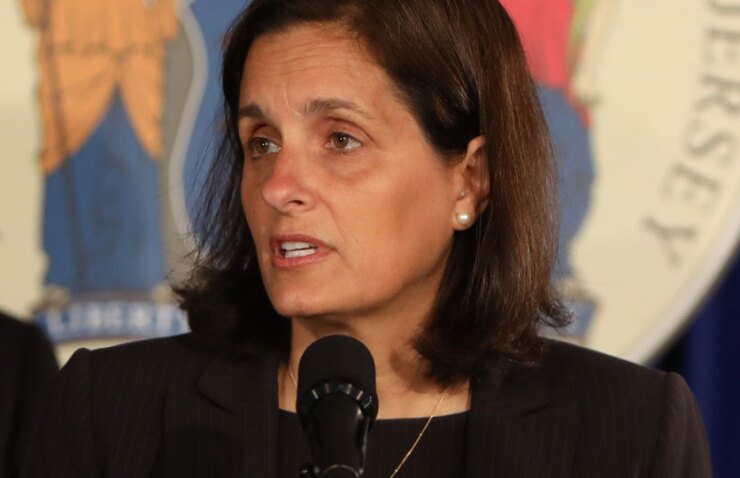New Jersey plans a combination of large-scale spending cuts and drawdowns of the state’s reserves to tackle a massive deficit caused by the COVID-19 pandemic.
State Treasurer Elizabeth Maher Muoio proposed $1.3 billion of spending cuts and deferring $2.1 billion of outlays between July and September as part of a roadmap for coping with near-term revenue hits through the end of the 2020 fiscal year on Sept. 30. Muoio also proposed transferring $421 million from the state’s rainy day reserves into the general fund, according to

“No amount of planning could have predicted the magnitude of the financial crisis we are facing,” Muoio said during Governor Phil Murphy’s COVID-19 daily news briefing Friday. “Some extremely difficult decisions will have to be made in the weeks and months ahead, decisions no one wants to make, but they will be unavoidable.”
Murphy and state lawmakers in early April
The $1.3 billion of spending reductions begin with $920 million already
Muoio also announced plans to delay a scheduled $951 million September pension system payment for public workers until October. The state’s original 2020 budget dedicated $3.8 billion toward its underfunded pension system with the goal of reaching a 70% actuarially determined contribution level.
Fitch Ratings credit analyst Marcy Block said the deferred pension payment would not have any bearing on the state’s general obligation bond rating, which is the second lowest of all U.S. states, ahead of only Illinois. Fitch
“At this point, we view it as a timing issue,” said Block of the pension deferral. “It’s an extraordinary time for them in terms of the extension of the fiscal year.”
New Jersey is rated A3 by Moody's Investors Service, A-minus by S&P Global Ratings and A by Kroll Bond Rating Agency.
The administration wants to delay $467 million in school aid payments, due Sept. 22, into October. A scheduled $250 million special education aid payment and a $114 million state subsidy to New Jersey Transit would also be moved from September to October under the revised end-of-year budget plan, according to Muoio.
Murphy
The administration is pushing for legislative approval to authorize up to $9.2 billion of borrowing under the Federal Reserve's Municipal Lending Facility to help address New Jersey’s looming revenue gaps. The governor laid out a
“Our road ahead is going to require a combination of serious budget tightening, critically needed borrowing and federal assistance,” Muoio said. “We will need a multifaceted approach.”





